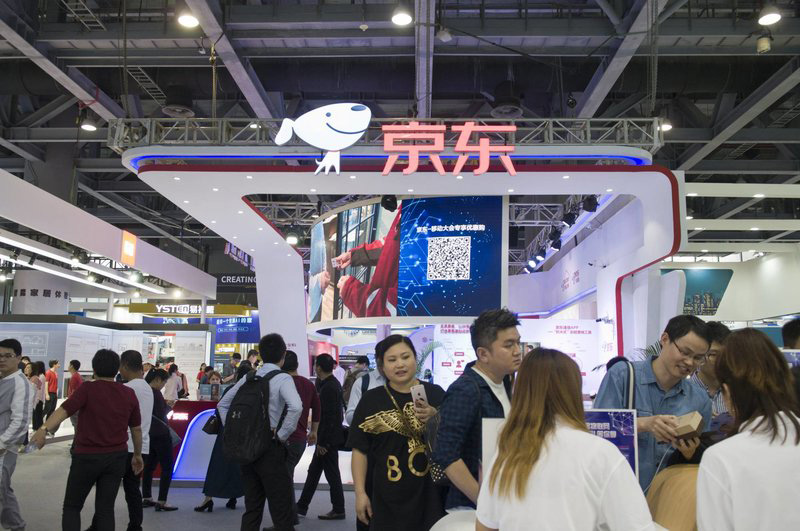京東不是個案,為何一些中國明星科技企業流年不利?

|
最近一系列媒體報道顯示,中國第二大電商京東商城計劃大幅裁員,以此遏制虧損,安撫投資者。這一消息突顯出,在宏觀經濟放緩之際,中國科技企業面臨的巨大挑戰。
4月9日,數字媒體《The Information》援引投資者消息稱,在納斯達克上市的京東準備裁撤多達1.2萬名員工,約占員工總人數的8%。彭博社和商業數字媒體Quartz也報道,京東打算裁員,已經撤銷了一些錄用意向函。
在傳出京東裁員的報道之前,其他中國科技公司已經有類似的人員縮編行動。中國社交媒體巨頭、線上游戲服務商騰訊在上個月表示,將裁撤多達10%的中高層管理人員。今年2月,網約車巨頭滴滴出行表示,將裁員15%。
有時,裁員是企業因為管理不善或者未能令監管層滿意而出此下策。以騰訊為例,此前中國監管機構曾經凍結視頻游戲的版號審批長達九個月,稱擔心網游上癮,造成青少年視力下降。滴滴則是因為去年發生網約車司機殺害女乘客的兇案而受到懲罰。
京東的困境部分源于創始人及首席執行官劉強東涉案。去年7月在美國阿斯彭舉行的《財富》科技頭腦風暴大會上,劉強東在接受《財富》雜志執行主編賴新基的采訪時還表現得信心滿滿。可就在一個多月后的8月31日,這位仍然稚嫩的企業家就在明尼阿波利斯被捕,罪名是性侵明尼蘇達大學一位21歲的學生。同年12月,亨內平縣的檢控官以證據不足為由撤銷了起訴。掌握京東80%投票權的劉強東表示,他和那名女生是兩情相悅發生關系,不承認有過不當行為。但這起事件的細節讓輿論給他冠以下流的惡評,此后,他消失在公眾視野中。
裁員也凸顯了中國科技企業的工作環境惡化,引發了全社會對科技領域工作待遇的熱議。直到今天,一些中國科技業人士還反常地以狂熱地長時間工作為榮。科技圈對這種工作文化有個熱門的稱呼:996。指的是如果想在這行獲得成功,就必須自愿朝九晚九,每周工作六天。而正如Quartz指出的,隨著越來越多中國的初創公司裁員,昔日國內科技企業優渥的工作崗位開始變得越來越像工廠里打工仔的飯碗那樣岌岌可危。(財富中文網) 譯者:Pessy 審校:夏林 |
China’s second-largest e-commerce company, JD. com, plans deep job cuts to staunch losses and reassure investors, according to a slew of recent media reports, highlighting the mounting challenges faced by Chinese tech firms as their nation’s economy loses steam.
The Information, citing investors, reported on April 9 that NASDAQ-listed JD.com is preparing to lay off as many as 12,000 people, or roughly 8% of its workforce. Bloomberg and Quartz also report the company is planning cuts and has rescinded some job offers.
Reports of layoffs at JD.com follow announcements of similar retrenchment at other Chinese tech companies. Tencent Holding, China’s mammoth social media and online games provider, said last month it would sack or demote up to 10% of senior and middle management. In February, ride-hailing giant Didi Chuxing said it would slash its workforce by 15%.
In some cases, the cutbacks are a response to governance failures or clashes with regulators. In the case of Tencent, Beijing slapped a nine month ban on new video games licenses for the company; regulators said they were concerned about online addiction and the deteriorating eyesight of the nation’s youth. Didi was chastened by the murder of two female passengers last year by drivers.
JD’s woes partly reflect the misadventures of its founder and CEO Richard Liu. Liu radiated confidence when Adam interviewed him at Brainstorm Tech in Aspen last July. But on August 31, the boyish entrepreneur was arrested in Minneapolis on charges of raping a 21-year-old University of Minnesota student. In December, the Hennepin County prosector dropped the case citing insufficient evidence. Liu, who controls 80% of JD.com’s voting rights, says the relationship was consensual and denies wrongdoing. But details of the incident cast him in a nasty light, and he has since shunned public appearances.
The layoffs also underscore a harsher operating environment for Chinese tech firms, igniting a broad debate about working conditions in China’s tech industry. Until recently China’s tech workers took a kind of perverse pride in working long hours at a feverish pace; the famed moniker for Chinese tech work culture is “996,” reflecting the notion that, to succeed, you have to be willing to work from 9 a.m. to 9 p.m. six days a week. But, as Quartz notes, with more and more Chinese ventures jettisoning workers, once-prized positions at the nation’s tech companies are starting to look every bit as precarious as work in China’s factories. |













